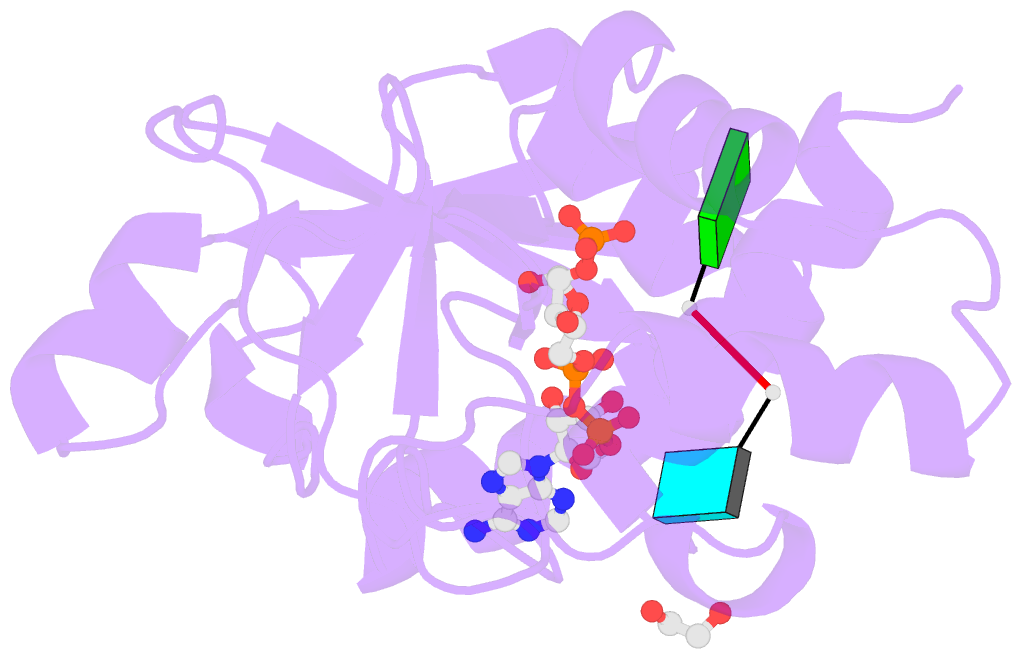Summary information and primary citation
- PDB-id
- 8tg4; SNAP-derived features in text and JSON formats;
DNAproDB
- Class
- transferase
- Method
- X-ray (1.37 Å)
- Summary
- Trna 2'-phosphotransferase (tpt1) from aeropyrum pernix in complex with adp-ribose-2"-phosphate and 2'-oh RNA
- Reference
- Jacewicz A, Dantuluri S, Shuman S (2023): "Structural basis for Tpt1-catalyzed 2'-PO 4 transfer from RNA and NADP(H) to NAD." Proc.Natl.Acad.Sci.USA, 120, e2312999120. doi: 10.1073/pnas.2312999120.
- Abstract
- Tpt1 is an essential agent of fungal and plant tRNA splicing that removes an internal RNA 2'-phosphate generated by tRNA ligase. Tpt1 also removes the 2'-phosphouridine mark installed by Ark1 kinase in the V-loop of archaeal tRNAs. Tpt1 performs a two-step reaction in which the 2'-PO4 attacks NAD+ to form an RNA-2'-phospho-(ADP-ribose) intermediate, and transesterification of the ADP-ribose O2″ to the RNA 2'-phosphodiester yields 2'-OH RNA and ADP-ribose-1″,2″-cyclic phosphate. Here, we present structures of archaeal Tpt1 enzymes, captured as product complexes with ADP-ribose-1″-PO4, ADP-ribose-2″-PO4, and 2'-OH RNA, and as substrate complexes with 2',5'-ADP and NAD+, that illuminate 2'-PO4 junction recognition and catalysis. We show that archaeal Tpt1 enzymes can use the 2'-PO4-containing metabolites NADP+ and NADPH as substrates for 2'-PO4 transfer to NAD+. A role in 2'-phospho-NADP(H) dynamics provides a rationale for the prevalence of Tpt1 in taxa that lack a capacity for internal RNA 2'-phosphorylation.





